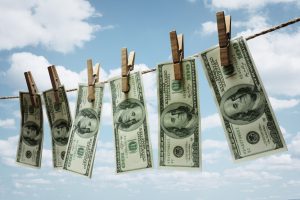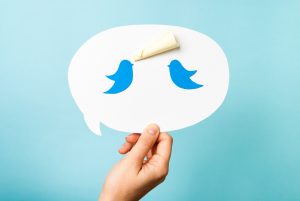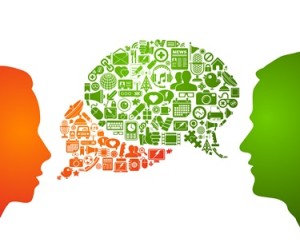 In his 2013 book, Our Final Invention, documentary filmmaker James Barrat explores the perils and promises of artificial intelligence (AI). The book’s ominous subtitle, Artificial Intelligence and the End of the Human Era, echoes similar dire sentiments regarding the ultimate consequences of mankind’s quest for fully functioning AI, including from celebrated theorists such as Stephen Hawking (“The development of full artificial intelligence could spell the end of the human race”) and Claude Shannon (“I visualize a time when we will be to robots what dogs are to humans.”).
In his 2013 book, Our Final Invention, documentary filmmaker James Barrat explores the perils and promises of artificial intelligence (AI). The book’s ominous subtitle, Artificial Intelligence and the End of the Human Era, echoes similar dire sentiments regarding the ultimate consequences of mankind’s quest for fully functioning AI, including from celebrated theorists such as Stephen Hawking (“The development of full artificial intelligence could spell the end of the human race”) and Claude Shannon (“I visualize a time when we will be to robots what dogs are to humans.”).
Drilling for the Blockchain: Energy Commodity Trading Using Distributive Ledger Technology
 The use of blockchain and cryptocurrency platforms continues to evolve and expand into new markets. We recently highlighted the new patent issued to tZERO covering blockchain-based methods and systems to trade “digital transactional items,” so it should be no surprise that another company—UK-based VAKT—has developed a blockchain platform for energy commodity trading.
The use of blockchain and cryptocurrency platforms continues to evolve and expand into new markets. We recently highlighted the new patent issued to tZERO covering blockchain-based methods and systems to trade “digital transactional items,” so it should be no surprise that another company—UK-based VAKT—has developed a blockchain platform for energy commodity trading.
The USPTO Looks to Nail Down the “Abstract Idea,” Among Other Things
On January 7, the U.S. Patent and Trademark Office released new guidance for how patent examiners should evaluate patent-eligible subject matter under 35 U.S.C. § 101. In “Evaluating the Evaluation: Breaking Down New USPTO Guidance for Patent-Eligible Subject Matter,” colleagues Jack S. Barufka, Ngai Zhang, and Matthew W. Hindman examine the new guidance—and what it means for patent eligibility going forward.
Blockchain Goes Wall Street – New Issued Patent Covers Cryptocurrency Trading Platform
 With bitcoin prices rising from the dead over the last few weeks (up nearly 25% from a December 14 low), there’s a degree of renewed excitement regarding blockchain and cryptocurrency. But as general public interest rises and falls, the steady process of creating useful applications and systems for distributed ledger technology continues. The issuing of new patents is one observable part of this process, and as such, it’s worth noting that trading platform tZERO, a portfolio company of the e-commerce giant Overstock, was recently awarded a patent outlining how it may merge legacy trading systems with cryptocurrencies and digital asset technology.
With bitcoin prices rising from the dead over the last few weeks (up nearly 25% from a December 14 low), there’s a degree of renewed excitement regarding blockchain and cryptocurrency. But as general public interest rises and falls, the steady process of creating useful applications and systems for distributed ledger technology continues. The issuing of new patents is one observable part of this process, and as such, it’s worth noting that trading platform tZERO, a portfolio company of the e-commerce giant Overstock, was recently awarded a patent outlining how it may merge legacy trading systems with cryptocurrencies and digital asset technology.
News of Note for the Internet-Minded – 1/9/19 – Mostly Tales of Human Bias and Misbehavior
Thieves loot some Ethereum; chat apps and the IoT attract unwanted attention; AI detects viruses … and password sharing; and more …
Artificial Intelligence and Money Laundering: Would AI Catch Marty Byrde?
 In the popular Netflix series Ozark, money launderer Marty Byrde expends a lot of time and energy mitigating the risks that relate to his work, including his drug cartel client, a pair of farmers, the local pastor, and his own employee and her relatives—but financial regulators never appear to be a blip on his radar. Would the series turn out differently if Marty’s bank had used artificial intelligence to examine his deposits?
In the popular Netflix series Ozark, money launderer Marty Byrde expends a lot of time and energy mitigating the risks that relate to his work, including his drug cartel client, a pair of farmers, the local pastor, and his own employee and her relatives—but financial regulators never appear to be a blip on his radar. Would the series turn out differently if Marty’s bank had used artificial intelligence to examine his deposits?
The Dangers of Tweeting at the Intersection of Social Media and Securities Laws
 In a time when information is increasingly shared through social media, companies—particularly publicly traded ones—must recognize and consider the potential legal ramifications that could arise from statements made by executives, board members, and/or other employees about the company on social media. Though the actions of a certain well-known technology entrepreneur have provided perhaps the most prominent example of these ramifications, there are plenty of other cautionary tales reminding us that a powerful marketing tool that allows company CEOs to connect directly with consumers carries a host of possible legal consequences. Among the most potentially damaging—time-consuming and costly securities-related litigation, both with complaints involving the SEC and private shareholder litigation.
In a time when information is increasingly shared through social media, companies—particularly publicly traded ones—must recognize and consider the potential legal ramifications that could arise from statements made by executives, board members, and/or other employees about the company on social media. Though the actions of a certain well-known technology entrepreneur have provided perhaps the most prominent example of these ramifications, there are plenty of other cautionary tales reminding us that a powerful marketing tool that allows company CEOs to connect directly with consumers carries a host of possible legal consequences. Among the most potentially damaging—time-consuming and costly securities-related litigation, both with complaints involving the SEC and private shareholder litigation.
Twibel Warfare: To Retweet or Not to Retweet Is Still the Question
 Earlier this month, we discussed the ways in which companies should navigate negative critiques and reputation management in the Age of Social Media. One option includes the pursuit of litigation, often demonstrated through claims for defamation. This course of action can typically be found in the context of a negative review: a company provides a service, customer is unhappy with the service, customer posts negative review about company online. In California, a company that wishes to claim said review has crossed a line must then prove (1) the customer made a false, defamatory statement concerning the company, (2) the customer made an unprivileged publication to a third party, (3) the publisher of the false statements acted at least negligently in its publication, and (4) the statement had a natural tendency to injure or cause special damage.
Earlier this month, we discussed the ways in which companies should navigate negative critiques and reputation management in the Age of Social Media. One option includes the pursuit of litigation, often demonstrated through claims for defamation. This course of action can typically be found in the context of a negative review: a company provides a service, customer is unhappy with the service, customer posts negative review about company online. In California, a company that wishes to claim said review has crossed a line must then prove (1) the customer made a false, defamatory statement concerning the company, (2) the customer made an unprivileged publication to a third party, (3) the publisher of the false statements acted at least negligently in its publication, and (4) the statement had a natural tendency to injure or cause special damage.
News of Note for the Internet-Minded – 9/13/18 – Alexa the Witness, Copyright’s Taste Test and ToSDR
Algorithms behave pretty much as they are programmed to (for good and ill); augmented reality continues to seep into the auto industry; humans strive for immortality; and more …
Critics, Trolls and the Disgruntled Few: Reputation Management in the Age of Social Media
 Managing reputation is tough when every person with a social media account is a potential critic with global reach. Organizations must contend with the concern that one negative social media posting could destroy hard-earned goodwill built up through years of thoughtful investments and interactions. While social media platforms allow for organizations to efficiently engage with their target audience, they also allow users to easily become the targets of reputational attacks, such as unfounded complaints or smear campaigns. The potential for posts to go viral, the ability for posts to remain with seeming permanence on the internet and the capacity for social media users to mask their identities make it difficult for organizations to mitigate the consequences of an online reputational attack. The good news is that victims of such an attack are not without recourse. Generally, there are four options for responding to a negative social media post:
Managing reputation is tough when every person with a social media account is a potential critic with global reach. Organizations must contend with the concern that one negative social media posting could destroy hard-earned goodwill built up through years of thoughtful investments and interactions. While social media platforms allow for organizations to efficiently engage with their target audience, they also allow users to easily become the targets of reputational attacks, such as unfounded complaints or smear campaigns. The potential for posts to go viral, the ability for posts to remain with seeming permanence on the internet and the capacity for social media users to mask their identities make it difficult for organizations to mitigate the consequences of an online reputational attack. The good news is that victims of such an attack are not without recourse. Generally, there are four options for responding to a negative social media post:
- Do Not Respond to the Post
- Respond Directly to the Author
- Contact the Social Media Platform
- Litigation
If, when and how to respond are decisions that must be made by each organization individually after considering several factors, including those discussed below.
 Internet & Social Media Law Blog
Internet & Social Media Law Blog



